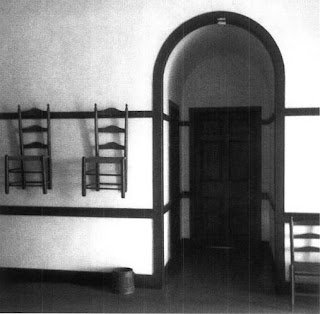
{to keep receiving links to these and other preaching materials and conversations, email me}
Ordinary time, and now two of the most un-ordinary, extra-ordinary texts in all of Scripture. Genesis 32:22-32. I’ll offer some comments, and offer you this sermon I preached on this 3 years ago – and it’s hard to beat Frederick Buechner on this story, vintage Scripture meets vintage Buechner, who’s given us not one but two spins on the story, one called “The Magnificent Defeat,” and the other from Son of Laughter. Sometimes I think it’s the kind of story you just stare at, and marvel. I’m not sure there’s a lesson or a takeaway at all. It’s Wow, what an amazing night for Jacob.
Ordinary time, and now two of the most un-ordinary, extra-ordinary texts in all of Scripture. Genesis 32:22-32. I’ll offer some comments, and offer you this sermon I preached on this 3 years ago – and it’s hard to beat Frederick Buechner on this story, vintage Scripture meets vintage Buechner, who’s given us not one but two spins on the story, one called “The Magnificent Defeat,” and the other from Son of Laughter. Sometimes I think it’s the kind of story you just stare at, and marvel. I’m not sure there’s a lesson or a takeaway at all. It’s Wow, what an amazing night for Jacob.
It’s tempting, and inviting, to psychologize. I love the song Sara Bareilles wrote for the
musical Waitress – of a woman who’s lost her self somewhere along the way, like
Jacob: It’s not simple to say, Most days I don’t recognize myself – these shoes
& this apron, this place & these patrons have taken more than I gave
them. It’s not easy to know, I’m not anything I used to be, it’s true, I was
never attention’s sweet center & I still remember that girl: She’s
imperfect but she tries, she is good but she lies, she is hard on herself, she
is broken but won’t ask for help… she is messy but she’s kind, she is lonely
most of the time, she is all this mixed up & baked in a beautiful pie, She
is gone but she used to be mine /Not what I asked for, sometimes life just
slips in thru a backdoor, I would give it up for a chance to start over &
rewrite an ending or two for that girl I knew.
The Bible doesn't speak of not being the person you used to be. But it gets at the heart of human existence, is "biblical" without being in the Bible - and the song is the sort of secular song one could use in worship without needing to baptize it....
Edgy and aggressive, yet alienated and floundering: Jacob gets jumped – or did he do the jumping? & he wrestles all night with – God? an angel? A stranger? Himself? Preachers here can just tease and ask, no need to answer, no need to choose.
I love his “I won’t let you go until you bless me.” Is this the exemplary prayer? The blessing somehow though is the struggle;
the blessing somehow is the wound, causing him to limp away. Buechner understood this so well. Sort of exposes those “touched by an angel”
stories as vapid; if an angel touches you, you’re wounded.
I love to play with Bible names.
Jacob would have been the Hebrew name of Jesus’ brother James. Did they ever wrestle? What is it to engage with God, barely
survive, and stagger away? No simplistic
prosperity Gospel here, and please don’t then simplify or trivialize it. Watch Jacob in the shadows, and be lost in
wonder.
Then the Gospel – the feeding of the 5,000. I preached on this at Duke Chapel six years
ago; the sermon starts at the 32 minute mark.
I started with some humor about how people at church dinners ask the
pastor about multiplying inadequate food… and about a horrible stewardship
sermon I heard on this text.
The text’s better moments are:
when the disciples point to hungry people, Jesus says You give them
something to eat! Love it. Then a little boy, unlikely – fulfilling once
again that “a little child shall lead them” – or in this case, “a little child
shall feed them.”
The leftovers simply amaze me.
In my Duke Chapel sermon, I explored this at some length. Jesus should have dazzled them with precisely
the amount of food needed! Or maybe he
should have been like even our churches, giving them just a smidgeon to get by,
questioning them sternly regarding why they were out of food…. But there is this lavishness, this bounty,
this superabundance. Sam Wells has
written so profoundly on this aspect of God’s nature, and what it means for us
as a Church (in God’s Companions, for instance).
Can
we recall any moment of God’s superabundance?
I preached in Haiti a few years back – in a rural, poor-by-Haitian
standards place. We had stuffed two
suitcases full of cookies. When the
service ended, my daughter had set all the cookies out. The children squealed with delight. Yes, they needed food, which we were working
on, and economic stimuli, and education, and lots of other things we were
laboring toward together. But for one
moment, there was sheer glee over the bountiful gift, a waste really.
My daughter painted an image of a little girl from that day, holding her Bible, dressed for church, yet clutching beneath her Bible an oreo, trying to look churchy, barely masking her giddiness over the chocolate.
My daughter painted an image of a little girl from that day, holding her Bible, dressed for church, yet clutching beneath her Bible an oreo, trying to look churchy, barely masking her giddiness over the chocolate.
Other
illustrative thoughts I have are contained in the sermon video shared above…
************************************
** My newest book, Worshipful: Living Sunday Morning All Week, is available. My forthcoming book, Weak Enough to Lead: What the Bible Tells Us About Powerful Leadership, will appear before too long.






















